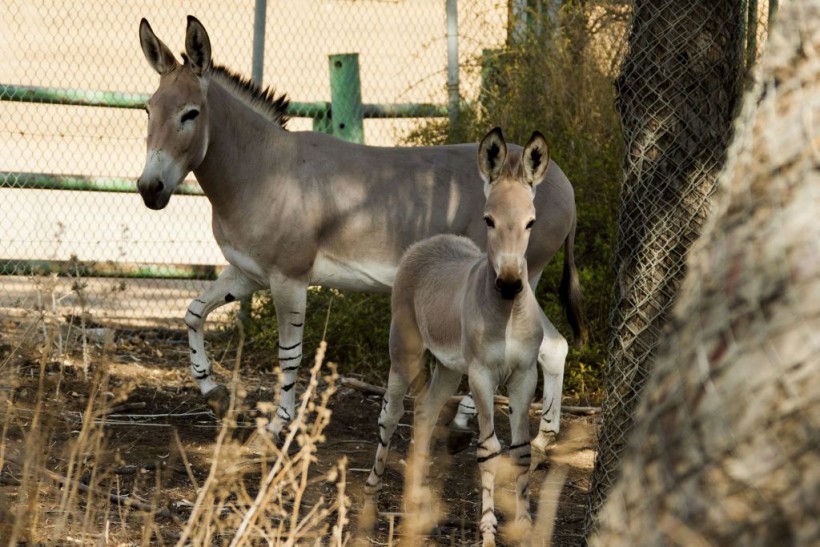Chile: Somali Wild Ass Born in Zoo, Sparks Hope for 'Critically Endangered' Species

The rare Somali Wild Ass is getting a ray of hope for its entire species thanks to a captive breeding program in Chile where a new foal was recently born.
The Buin Zoo in the outskirts of the Chilean capital of Santiago, noted by many for injecting its animals with the COVID-19 vaccine, has cause for celebration after successfully delivering a new Somali Wild Ass foal into the world. This new captive birth is seen as a boon to the international effort to help restore the species.
The International Union for Conservation of Nature categorizes Somali Wild Ass as critically endangered. Currently, less than 200 mature individuals are left worldwide, and conservationists are trying to save the species through captive breeding programs around the world in select zoos. Chile's Buin Zoo is one of them.
"We're really happy to be telling this news during such difficult times for conservation for so many species," Ignacio Idalsoaga, founder and director of the Buin Zoo, told Reuters. With this latest addition, the director added that the foal is now the zoo's fifth specimen.
"It's great news for conservation of a wild donkey that's disappearing from the earth and we have the capacity to reproduce it here, at the edge of the world, in Chile," Idalsoaga added.
Idalsoaga lamented the fate of these wild animals, saying, "The bones are used in soups that supposedly have medicinal characteristics that hasn't been scientifically proven, but it's practically brought on the extinction of a beautiful species."
This would also be the third Somali Wild Ass born in Chile, with the first two foals being born in 2021. They were named Lucrecia and Ita, though the third foal has not yet been named as of writing.
READ NEXT: 5 Mexican Hot Peppers Deemed the Spiciest in Mexico
Other Successful Somali Wild Ass Captive Breeding Programs in the US and the UK
Aside from Chile, the US and the UK are also participating in the species' captive breeding program. In the US, the St. Louis Zoo in Missouri successfully started breeding them in 2019 when Tobias was born, according to NPR.
The zoo has been working on conserving these animals and is helping communities that usually hunt these creatures find alternative food sources.
Over in the UK, the Zoological Society of East Anglia's Africa Alive Zoo has been taking part in the European endangered species breeding program since 2004. Among the animals that they are trying to save are the Somali Wild Asses.
According to the BBC, a new foal was born to mother Calula and father Sahib last year.
What Are Somali Wild Asses?
Somali Wild Asses are donkeys and also a close relative of the zebra, as seen in the species' striped legs. They originally lived in parts of Africa and Asia, though they have now been reduced to minuscule populations around the Horn of Africa, in countries like Eritrea and Ethiopia, where they are considered delicacies.
According to the San Diego Zoo, other factors such as political unrest, encroachment of their land and water sources by domestic herds, poaching, and a general lack of concern for their welfare have all contributed to the decline of the species considered the smallest of the equids, which are of course donkeys, horses, and zebras.
READ NEXT: Chile Political Parties Agree to Try and Change Constitution Again
This article is owned by Latin Post.
Written by: Rick Martin
WATCH: Welcome To The Herd, Little Somali Wild Ass! - San Diego Zoo Safari Park
Subscribe to Latin Post!
Sign up for our free newsletter for the Latest coverage!














